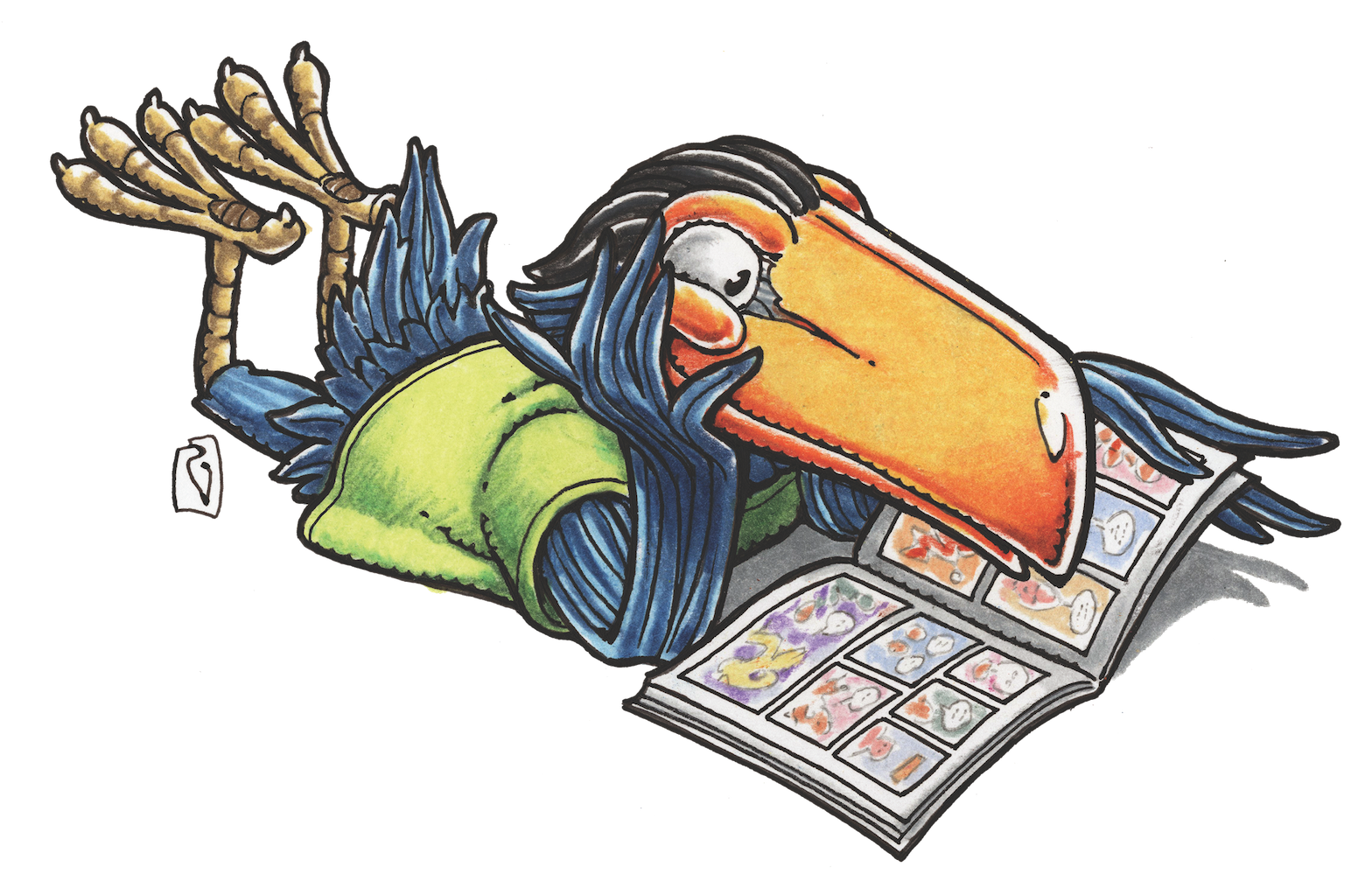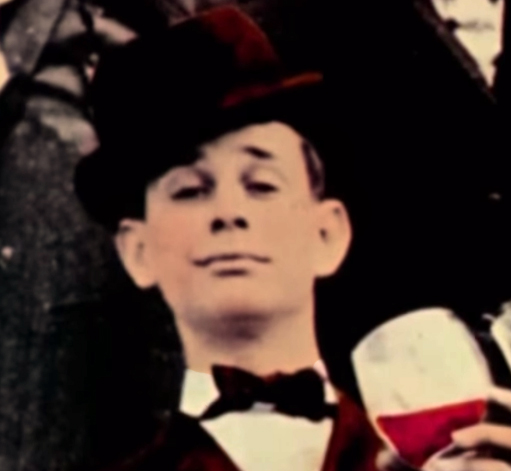JESSE HAMM’S CAROUSEL
Carousel 014: Convention Tips


Summer means conventions! If you make comics, comic book conventions are a chance to show your work around and meet potential readers and clients. Here are ten conventioneering tips I’ve rarely seen elsewhere, which I really could have used when I was starting out.
1. PROMOTE YOU.
You can always promote your work online. Conventions are your chance to promote YOU. Arrive rested, arrive early, don’t hide in your sketchbook. Buying, selling, and all the other business of a convention should take a back seat to Job One: Presenting your best self, in person, to colleagues, clients, and readers who have few chances to meet the real-life you.
2. PROMOTE YOUR NAME.
Building on the previous tip, make sure that no one you meet has to wonder what your name is. I’ve often met people on a first-name basis at conventions and had a nice chat, only to learn later that they were artists whose work I enjoy, or who I know from social media. Had I learned who they were at the time, I could have praised their work, and maybe offered them job opportunities, or introduced them to useful contacts. So, when you meet someone at a convention, be sure to introduce yourself with your full first-and-last name (or whatever pseudonym you use). If you have a name badge, clip it to your shirt in such a way that your name is clearly visible. Maybe even invest in a shirt featuring your own art—and your name, in big letters. Free ad space! Don’t leave anyone wondering who you are. Self-promotion may feel awkward, but if you’re a freelancer, this is part of your job.
3. EMPTY YOUR BAG AT EVERY OPPORTUNITY.
Books and comics are heavy, and during a convention they will multiply in your bag like rabbits. When you’re spending all day on your feet, that extra ten pounds in your bag will wear you down. Give your feet and back a break! Return often to your vehicle, room, or table—or that of a friend—to empty your bag. That occasional five-minute walk will be a small price to pay for a lighter load. (Bonus tip: When exhibiting at a table, spare your feet by laying a folded yoga mat on the hard floor to stand on.)
4. SNACK AND SIT OFTEN.
The thrilling sights and sounds of a convention make it tempting to postpone rest and food breaks, but you’ll become increasingly cranky and woozy if you don’t pace yourself. This is especially true if you’re unused to standing or walking for ten hours straight, or if constant human interaction leaves you drained. Pack snacks and drinks in your bag, find places where you can sit—a friend’s table, an interesting panel discussion—and schedule points throughout your day to sit down and recharge. Arrange little “dates” with yourself—and keep them!—and you’ll stay fresh and alert, ready to make a good impression.
5. NEVER DINE WITH A CROWD.
When making meal plans at a convention, it’s fun to invite as many people as possible, and all their friends. This is a mistake. You end up scouring the neighborhood for a restaurant that can seat a big group, settling for one you don’t like, waiting forever to be seated, and then dining between friends-of-friends with whom you have little in common. Instead, select a small handful of people you want to get to know better, and share a meal with them only. The conversation will be more rewarding, and there will be less chaos to stress you out. (If a comics luminary invites you to a group dinner with a crowd of bigwigs, feel free to chuck this tip out a window.)
6. SEEK OUT STUFF YOU CAN’T FIND AT HOME.
Conventions offer the rare chance to buy foreign, self-published, or out-of-print comics that you can’t find online or at your local comic shop. Go hunting; broaden your influences. Discipline yourself to step outside of your normal buying habits and try something unfamiliar, something that shows you new ways to cartoon. Also, peruse the scheduled panel discussions. Some of my fondest convention memories are from watching veteran creators reminisce and discuss their methods and ideas. Many of these folks are no longer with us, so I treasure the opportunities I had to see them speak and hear their stories, and learn things you can’t find written down.
7. DRESS FOR WORK.
A convention may feel like a vacation, but it’s many clients’ sole opportunity to see you in person. If you show up wearing flip-flops and a tank-top, it may be harder for them to envision you meeting their deadlines. I heard this advice when I was starting out, but I didn’t believe it. “My art should speak for itself,” I thought. “They’re not hiring my fashion sense!” My reasoning was logical, but human interaction isn’t always logical, as I later learned. At one convention, instead of wearing my usual T-shirt, I happened to attend wearing a dress-shirt and slacks. I hadn’t drawn any new samples, so I brought samples I had shown around at a previous convention. The difference was palpable! Editors were far more respectful of me at this second convention, treating me as a prospective colleague, instead of as some kid off the street. My art was the same, but this time they took it seriously. I learned that day that a portfolio review isn’t just a review of your portfolio; it’s a reaction to everything you bring to the table.
8. MARK THE MOMENT.
If you draw sketches at a convention, it’s useful to add the name and date of the convention under your signature. This helps both the fan and the artist to recall the occasion whenever they see the sketch again later, which is fun. (And if your sketch shows up online, readers will note that it was drawn on the spot, and will hopefully excuse any gaffs that wouldn’t have appeared in your usual work.) If you attend a panel discussion, bring your sketchbook. I like to (surreptitiously) sketch head-shots of creators as they speak, and jot down their more notable remarks. It’s fun to look at later, and the process cements in your mind the lessons you learned that day.
9. SANITIZE.
Much like kindergarten, conventions can be a germ cauldron. Thousands of people packed into a single room means you’ll be breathed upon—or shake hands with, or accept cash from—someone who has a cold or the flu. Bring vitamins and bottles of hand sanitizer, and sanitize often!
10. DON’T EXPECT YOUR CAREER TO CHANGE THERE.
The excitement and “event-ness” of a convention can tempt you to see it as the big turning point in the movie of your life. “This will be where it all changes and I get discovered!” The reality is that few jobs are landed at conventions. Editors attend conventions to promote their projects and reconnect with colleagues; their main priority at a convention isn’t offering jobs to new talent. However, a convention IS a great place to plant seeds that bear fruit LATER. It’s not a time to harvest; it’s a time to sow. You meet a fellow fan at a convention, you stay in touch, and—a month, a year, ten years later—that friend may be in a position to hire you, or recommend you to an editor. The vast majority of the assignments I’ve had throughout my career came through contacts I’d previously made at conventions. Progress in your art career isn’t about a single weekend, but about how you work and present yourself on a habitual basis, long-term.
I hope these tips will prove useful as you head into convention season. We’ll be taking a break for Comic-Con in July, but I’ll see you back here in August!